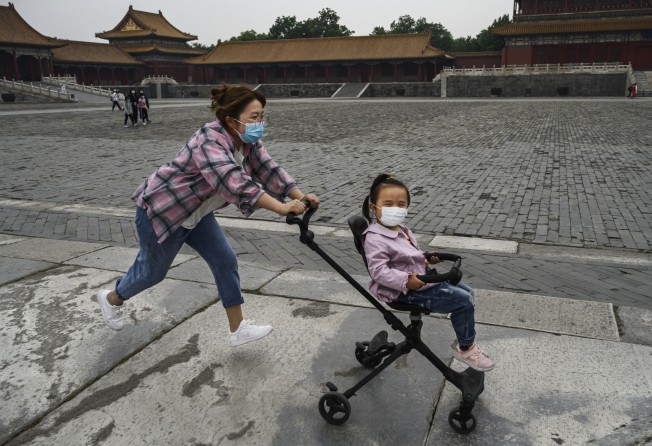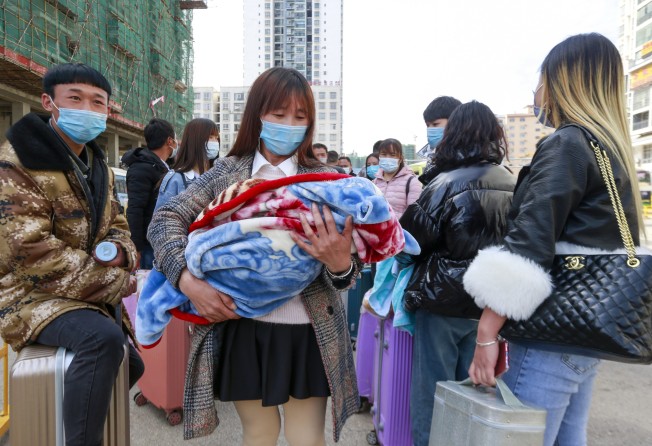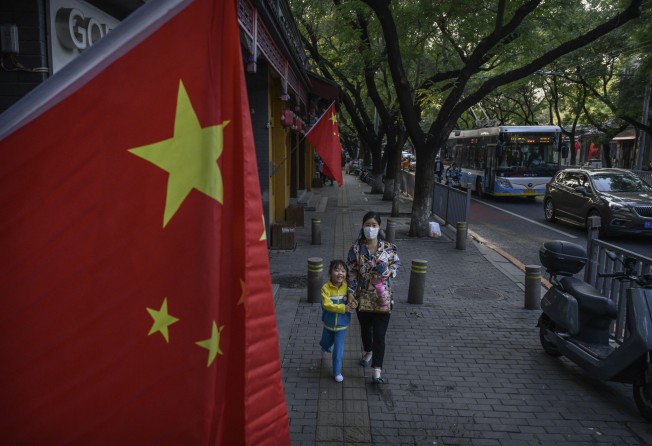
Chinese government push for better maternity leave met with shrugs or concerns it will promote discrimination against women
- About a dozen regional governments have extended maternity allowances in the past month
- But some women say it will just push companies to hire more men or dissuade women from having children

A dozen regional governments in China have lengthened maternity leave allowances in the past month to incentivise families to have more children amid concerns of an impending demographic crisis.
However, many people questioned whether the policies would make any difference in China’s collapsing birth rate and pointed out that it could increase discrimination against women in the workforce.
Some rule changes allow women to more than double their maternity leave, while others are making policies that increase maternity perks as families have more children.

In Beijing, officials added 60 days to maternity leave effective from November 26, bringing the total to 158. Furthermore, the mother can take an additional one to three months of leave if the boss allows. Paternity leave in the city remained at 15 days.
Beijing also passed a new policy that would allow parents to take a total of 5 days for a “parenting break” every year until their children turn three. 10 other provinces passed similar measures, ranging from five to 15 days.
In eastern China’s Zhejiang province, a November 15 update provided women with an extra 60 days for their first children and 90 more days for a second or third.
In Chongqing municipality, the government said on November 15 that one parent could take leave for an entire year if they wanted.
The policy push was met with a shrug by some, and voices of concern by others.
It is so much trouble raising a child nowadays.
Annie Liu, a Beijing mother who works at a local university with a daughter in kindergarten, told the South China Morning Post that the policy changes would not motivate her to have more children.
“It is so much trouble raising a child nowadays,” she said. “I would have to think about whether the elderly could help me raise a second or third child. If not, I would have to pay for babysitters.”
She said raising a child in China requires a lot of investment in their growth and education. Plus, she would have to balance child-rearing with her career, and she does not believe her supervisors would be happy if she had more children.
Other people in China said the new policies might increase discrimination against women because companies would use the maternity leave policies as an excuse to hire men.

A feminist who went by the pseudonym Hepburn said:
“Unmarried women and those who are married with one child will face discrimination when they look for jobs. And also when it comes to getting promotions.”
She volunteers at a grass roots organisation named Inspection Squad for Workplace Gender Discrimination and said the organisation had encountered examples of recruiters listing “men only” for jobs or allowing only a few slots for women.
Hepburn said that if the government wanted to encourage births, it would need to pass policies that promoted childhood education, protected women’s rights and invested in physical infrastructure such as nursing rooms in public places.
In the official China Statistical Yearbook released last week, the birth rate in 2020 fell to 8.52 births per 1,000 people, the first time it fell below 10 since 1978.
In November, regional birth rates for the first nine months of 2021 sparked concerns that the decline will continue to accelerate in coming years. The statistics included an 18.8 per cent drop in births in Henan, China’s third-most populated province.
The plummeting birth rate, coupled with the country’s rapidly ageing population, has presented China with a demographics crisis with no simple solutions.